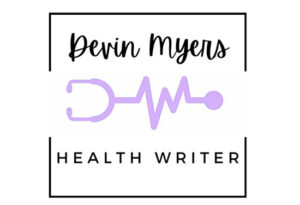Guest contributor, Hannah Breadon

My name is Hannah Breadon. I am a Certified Diabetes Nurse Educator who has lived with type 1 diabetes for 20 years. Over the years I have been involved in many diabetes events including JDRF’s Rockin’ for Research Fundraising Gala in Vancouver, and 10 years of work with Camp Kakhamela, a pediatric and family diabetes camp. I have used an insulin pump for 14 years and have recently gone on a “pump holiday”, switching back to multiple daily injections which I have really been enjoying. When I am not working, I enjoy staying active through soccer, softball, and surfing!
Throughout my career as a Diabetes Nurse Educator I have been asked all kinds of questions from people living with type 1 diabetes and their families. I’ve taken this opportunity to answer the most common questions about type 1 diabetes management. Here are just a few of the ones I hear most frequently.
How worried should I be about a high A1C during the teen years?
Maintaining an A1C in target can be challenging at times, especially when you are busy being a teenager. Technologies such as continuous glucose monitors (CGMs) or flash glucose monitors (FGMs) can help to lower A1C and take away some of the extra work with completing blood sugar checks frequently. Overall do your best to maintain an A1C in target range, and ask for help from your health care providers if you are feeling overburdened by diabetes.
Can I consume alcohol? What do I need to know about drinking alcohol while living with T1D?
When of legal age, alcohol consumption is something that people with diabetes can do safely if certain precautions are taken. Depending on the type of alcohol being consumed the blood sugars may rise initially, although can lower into a hypoglycemic range even up to 12 hours later. It is very important to monitor blood sugars closely when drinking alcohol. Please make sure your friends are aware of the signs of symptoms of hypoglycemia in comparison to intoxication, and understand how to treat a low if needed. One very important note is that glucagon does not work if alcohol is in your system. The liver works to detoxify the alcohol, and thus the action of glucagon doesn’t work.
Dawn phenomenon; what do I do about this? Anything I need to know?
Some individuals with type 1 diabetes experience an elevation in blood sugars early in the morning, usually around 3-7am. This is known as the Dawn Phenomenon. If you are wearing an insulin pump you can create a basal rate midway through the night to address this elevation in blood sugars.
How do I navigate an emergency room and ensure I can continue to monitor and administer insulin while healthcare providers are working to take over health care management?
If someone living with type 1 diabetes is brought to an emergency room, the primary thing I would recommend doing is to explain to the health care providers what type of insulin therapy or technology you are using. Depending on the reason for the ER visit, it may not be possible for you to continue to wear your insulin pump, CGM or FGM. As a whole, you may have to act as an advocate for yourself and provide some education regarding your insulin therapy and technology used. If you are clearly able to detail to the health care providers what type of technology you are currently using you may be able to continue wearing them while in the hospital.
I don’t understand the difference between interstitial fluid and blood glucose
Interstitial fluid is the fluid which is floating around your cells. With continuous glucose monitors, the glucose in the interstitial fluid reacts with the coating of the small wire inserted into the tissue and transmits a signal which then converts to a blood sugar value. The important thing to note is that glucose first moves from the blood cells and then goes into the interstitial fluid. In terms of CGMs, this then means that the value presented on the CGM could be delayed if your blood sugar is rapidly rising or falling. In situations where you are experiencing low or high blood sugars, it is best to complete a finger blood sugar check to ensure you are able to react appropriately to your current number.
Do I need to be on an insulin pump?
Insulin pump therapy is a great tool for some individuals living with type 1 diabetes. Pump therapy can provide more precise dosing, more flexibility adjusting insulin, and more steady absorption of insulin. That being said, insulin pump therapy is not for everyone. Some individuals find that working with Multiple Daily Injections can correspond with a great A1C value in comparison to pump therapy. A few considerations when thinking about pump therapy is the readiness to learn, willingness to wear a device 24/7, and finances.
Diabetes management is unique for everybody and it’s normal to have many questions even long after your diagnosis. Do you have any pressing questions that I have missed? Feel free to send them my waythrough JDRF’s Facebook, Twitter and Instagram accounts! Just use the hashtag #AskT1DNurse





